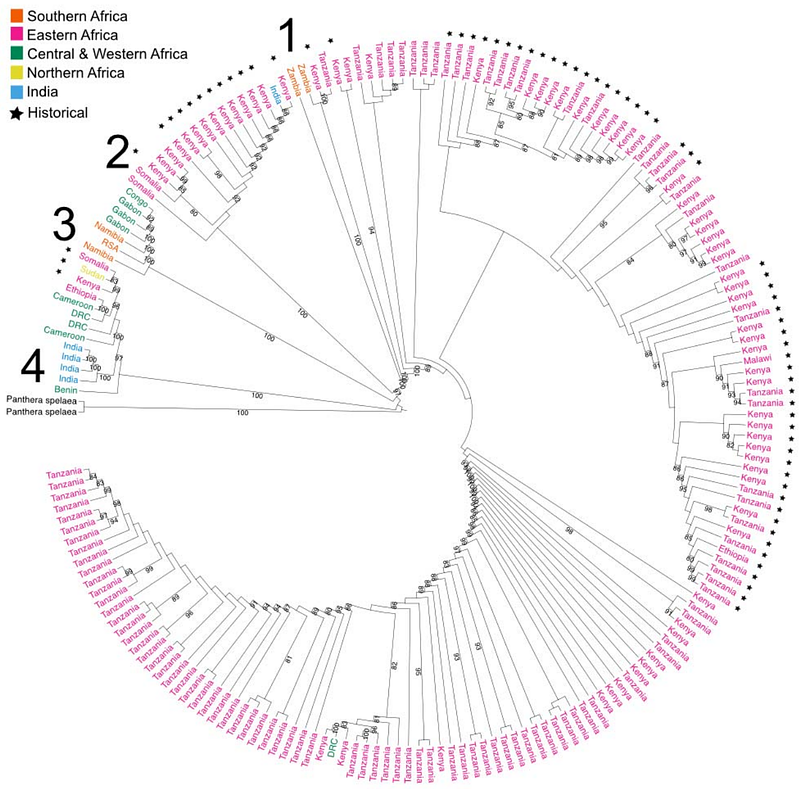President Roosevelt's lions reveal a century of population fragmentation in Africa's largest carnivore

President Roosevelt's lions reveal a century of population fragmentation in Africa's largest carnivore
Armstrong, E. E.; Curry, C.; Solari, K. A.; Morgan, S.; Patterson, B. D.; Agwanda, B.; Parker, L. D.; McInerney, N.; Helgen, L. E.; Helgen, K. M.; Packer, C.; Petrov, D.; Hadly, E. A.; Maldonado, J. E.; Fleischer, R. C.; Campana, M. G.
AbstractOver the past century, lion (Panthera leo) populations across Africa have experienced rapid and severe declines. Despite this, East Africa is considered a modern day lion stronghold. Here, we use whole genome sequencing of both recent and historical lion populations, primarily collected during the Smithsonian Roosevelt East African (1909 to 1911) and Rainey (1911 to 1912) Expeditions, to investigate changes in population structure, connectivity, and diversity over the last ~100 years in East Africa. We find a clear signal of population fragmentation when comparing historical (1896 to 1946) and recent (1990 to present) lion populations. Our analyses reveal genetic distinctions between remaining lion populations in Kenya and Tanzania and document loss of genetic diversity over time including reduced heterozygosity and the accumulation of runs of homozygosity. We detect a severe bottleneck in both Kenya and Tanzania approximately 25 generations ago, coinciding with a severe rinderpest outbreak in the region that is known to have decimated bovid and ultimately carnivore populations in the area. Nevertheless, modern lions in East Africa still exhibit overall high levels of diversity and low levels of inbreeding. Our results provide direct evidence of the effects of increasing habitat fragmentation and the significance of temporal data for contextualizing current patterns of population connectivity and diversity.